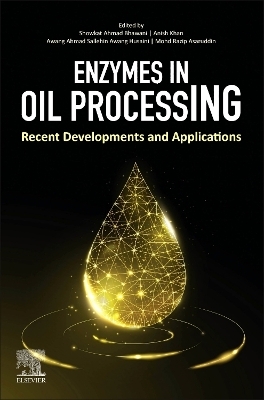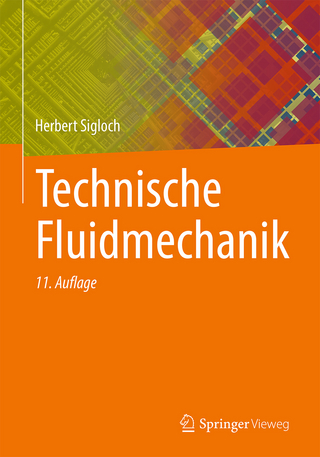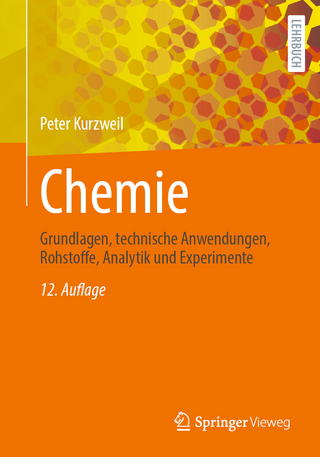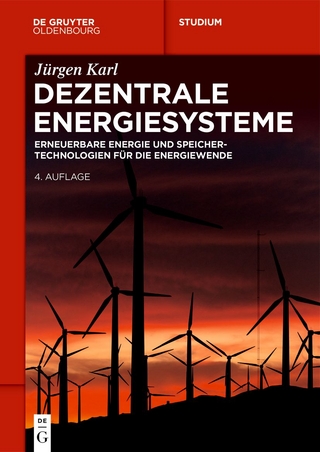
Enzymes in Oil Processing
Elsevier - Health Sciences Division (Verlag)
978-0-323-91154-2 (ISBN)
It will also be useful to scientists working on the processing of oil by enzymes and students in the development of green and sustainable methods for the processing of oil in chemistry, biotechnology and chemical engineering.
Dr. Showkat Ahmad Bhawani is presently working as an Associate Professor at Department of chemistry, Faculty of Resource Science and Technology, UNIMAS Malaysia. In addition to this, he has a teaching experience of two years from King Abdul Aziz University- North Jeddah and a post-doctoral experience of Three years from the Universiti Sains Malaysia, Malaysia. He has received his M Sc. in Analytical Chemistry and Ph D. in Applied Analytical Chemistry from Aligarh Muslim University, Aligarh, India. He is working on the synthesis of molecular Imprinting polymers for the removal/extraction of dyes, fungicides and various natural products from environmental and biological samples. In addition to this, he is also working on the development of new test methods and determining standard conditions for analysis (Separation, Isolation and Determination) of various analytes from environmental and biological samples. He is involved in the analysis of samples like: Surfactants, Amino acids, Drugs, Vitamins, Sugars and Metal ions. He has published 1 book and 8 book chapters and he has published more than 30 papers in various journals. He is life member of Asian polymer association and editorial board member of several journals. Dr. Anish Khan is currently working as Assistant Professor in Chemistry Department, Centre of Excellence for Advanced Materials Research (CEAMR), Faculty of Science, King Abdulaziz University, Jeddah, Saudi Arabia. Completed Ph.D. from Aligarh Muslim University, India in 2010. Completed Postdoctoral from School of Chemical Sciences, University Sains Malaysia (USM) in Electroanalytical chemistry in 2010. Working in the field of synthetic biosensor, polymer composites, organic–inorganic electrically conducting nanocomposites. More than 200 research articles, 70 book chapters 30 books published in referred international publisher and more than 20 international conferences/ workshop. More than 30 research projects completed. Editorial board member of more than 11 international journals. Member of American Nano Society. Dr Awang Ahmad Sallehin Awang Husaini is a Professor at the Faculty of Resource Science and Technology, UNIMAS. He has received his Doctorate degree in Molecular Enzymology from University of Manchester, Institute of Science and technology (UMIST) in 2001. His research and work experience focuses specifically in enzymology, bioremediation, biodegradation; environmental biotechnology, downstream mycology and Molecular biology. He is currently working on several research project on the development of enhanced biofertilizer with biocontrol properties, bioremediation of organopollutant (hydrocarbon and pentachlorophenol), enzymatic studies on lignocellulolytic, pectinolytic and amylolytic degrading microorganism, bioremediation of domestic wastewater, biodegradation of sago industrial waste, composting of oil palm empty fruit bunch (OPEFB), green technology e.g. enzymatic retting of pepper for white pepper production, biodeinking and biopulping to name a few. So far, through his studies, he managed to come up with the enhanced biofertilizer products and developed several environmental friendly technology using biological agents such as microbes and enzymes that enhances the bioremediation of organopollutant and dyed wastewater. He is also actively involved in the production and characterization of bioactive metabolites produced by fungal endophytes through fermentation process using agricultural waste as substrates, particularly the lignocellulosic waste from agricultural commodities such as rice, sago and oil palm. He has 20 years of experience in teaching and research. He is also involved in research and innovation management administration since 2014. In terms of supervision, he successfully graduated a total number of 29 postgraduate students (21 Masters and 8 PhD) under his supervision and secured 44 number of research grants at the national, industrial and international levels. So far, he successfully published more than 75 number of scientific publications including journals, proceedings, book chapters and articles in bulletins. Dr Mohd Razip Asaruddin is a Senior Lecturer at the Faculty of Resource Science and Technology, UNIMAS. Currently he is appointed as the Deputy Dean of Industrial and Community Engagement post. He received his Doctorate degree in Pharmaceutic Technology, Pharmaceutical Sciences from Universiti sains Malaysia in 2016. His research and work experience focuses specifically in Drug Design and Natural Products Chemistry and also formulating health products. So far, he has commercialized various health products including foods and beverages through licensing program via UNIMAS RIEC unit. The main research is focusing on the virgin coconut oil as the potential health remedy that can be incorporated in various products. Currently he is working closely with more than five industry players regarding the University enhanced research and innovation products. He has received UNIMAS Commercialization award in 2017. Since 2015 to date, he received Gold Medals in all local and international participation of Innovation award
1. Introduction to Enzymes
2. Introduction to oil processing
3. A perspective of market of enzymatic processing vs conventional processing
4. Recent advances in enzymatic degumming
5. Enzymatic Interesterification
6. Enzymatic modification of oils
7. Enzymes for recovery of oil from edible seeds
8. Enzymatic transesterification of cooking oil
9. Bioremediation of cooking oil waste by Lipases
10. Enzymatic processing of rice bran oil
11. Influence of enzymes on oil extraction
12. Factors affecting enzyme mediated oil extraction
13. Enzymatic processes for edible oil extraction
14. Aqueous enzymatic extraction of oil
15. Microwave assisted enzymatic extraction of oil
16. Ultrasound assisted enzymatic extraction of oil
17. Enzyme assisted extraction of essential oil
18. Enzyme assisted extraction of virgin olive oil
19. Enzyme assisted extraction of oil form oil seeds (soybean canola peanut rapeseed Corn)
| Erscheinungsdatum | 30.01.2024 |
|---|---|
| Verlagsort | Philadelphia |
| Sprache | englisch |
| Maße | 152 x 229 mm |
| Gewicht | 450 g |
| Themenwelt | Naturwissenschaften ► Chemie ► Technische Chemie |
| Technik ► Umwelttechnik / Biotechnologie | |
| ISBN-10 | 0-323-91154-4 / 0323911544 |
| ISBN-13 | 978-0-323-91154-2 / 9780323911542 |
| Zustand | Neuware |
| Informationen gemäß Produktsicherheitsverordnung (GPSR) | |
| Haben Sie eine Frage zum Produkt? |
aus dem Bereich


